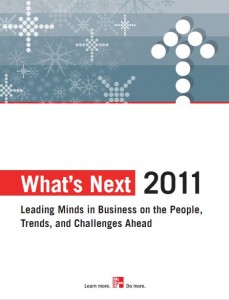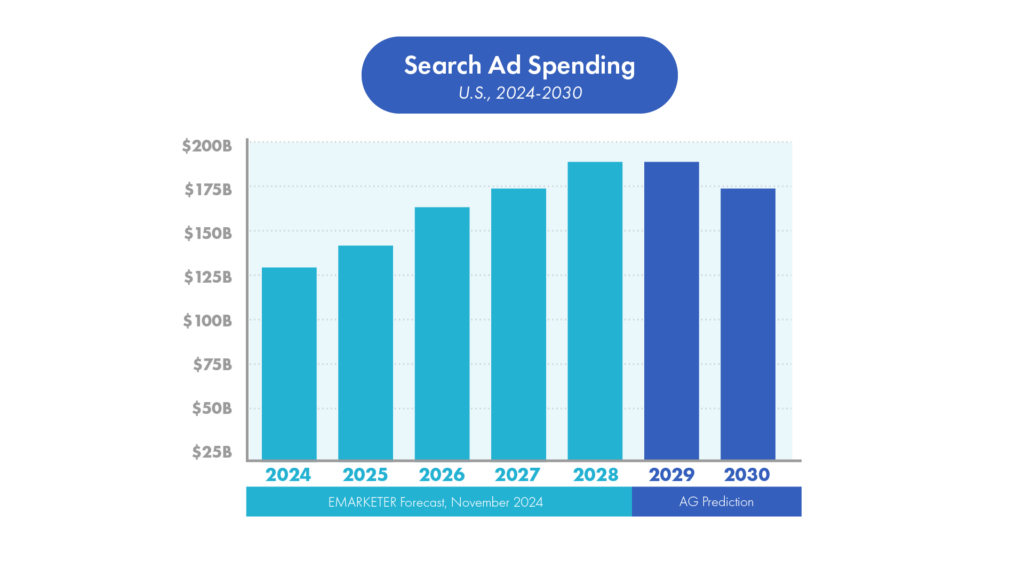
Yesterday, McGraw-Hill released an eBook compilation of short essays from its authors on “What’s Next” for 2011. The topics range from innovation to investment to sales to leadership to, of course, search. It’s a great, quick read from some of the “leading minds in business” so be sure to download your copy.
Here’s my take on what’s in store for search next year…
2011: The Year That Search Got Social
by Aaron Goldman
Search marketing and social media are on a collision course. And 2011 will be the big bang. The implications for marketers, search engines, and social networks alike will be profound. Here’s what you need to know.
To date, search has been the primary way people have found things on the Internet. Looking for a place to eat? Google it! Want to know what camera to buy? Google it!
That’s changing though. As more and more people join Facebook, Twitter, and other social networks, the answer to these questions is no longer, “Google it!” It’s now, “Ask your friends.” Or, “Ask your followers.”
As it turns out, your friends, families and others in your social circle (read: people) are better indicators of what you might like than webpages stuffed with keywords and links (read: webmasters).
Who’d have thunk it?!? That Zuckerberg guy, that’s who.
Indeed, Facebook stands positioned to lead the next wave of innovation in search marketing. And this will likely benefit Microsoft, of all companies. In early October, Facebook and Microsoft announced that “likes” (all those little “thumbs up” buttons that get pushed on Facebook and other sites across the web) will be integrated into the Bing search algorithm.
Now, instead of search engines deciding what websites are most relevant to you based on the number of links they have, rankings will be based on the number of likes they have. And, more importantly, likes by people in your social graph.
So, how can you make sure your organization is prepared for this shift in search power?
For starters, make sure you’re “well-liked.” Put that button on your website and encourage people to click it. As an example, Walmart recently started running promotions that offer exclusive discounts to people who like its page.
And don’t forget Twitter. Set up an account and start tweeting. If the “like” trend is any indication, it won’t be long before Twitter followers and “retweets” are applied to search engine algorithms as well.
But don’t fire your search engine optimization team just yet. Google still controls over 70% of the global search market so it’s critical to make sure your website is well-optimized for keywords and links.
That said, it won’t be long before Google gets social. Whether it’s an acquisition of Twitter or a new social network called Google Me, you can be sure the Big G will be bringing the big guns.
So, as 2011 draws near, the best advice I can give comes from Chapter 8 of my book. Test everything.
Get more likes. Get more links. Get Googley. Get Facebooky. Get Bingy. Get Twittery.
As Google CEO Eric Schmidt himself put it, “The mistake we always make is we assume the success in the next 10 years will be the same as the success in the last 10 years. The dominant players always get it wrong.”
When it comes to search marketing, success in 2011 will not be the same as 2010. The future is social, whether you like it or not.
Aaron Goldman is Chief Marketing Officer at Kenshoo, a global leader in search marketing and online advertising technology for advertisers, agencies, and local marketing providers. He is also the author of Everything I Know about Marketing I Learned from Google.













